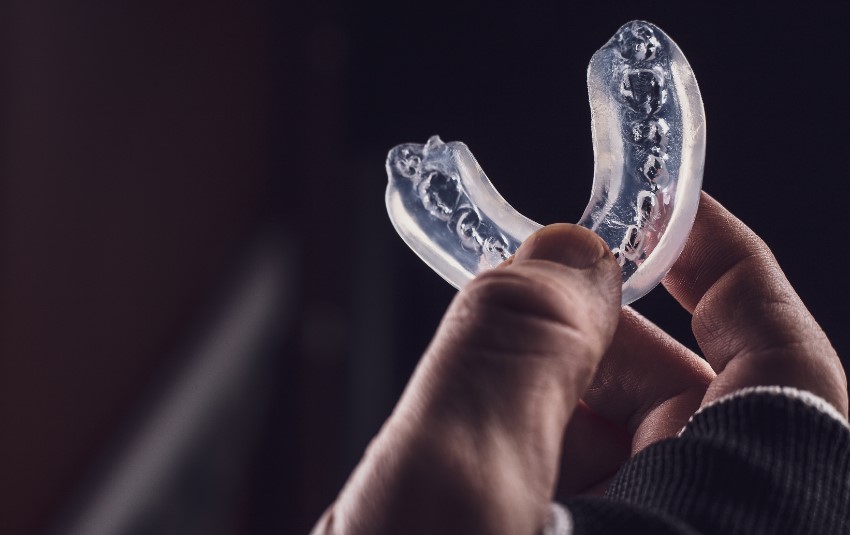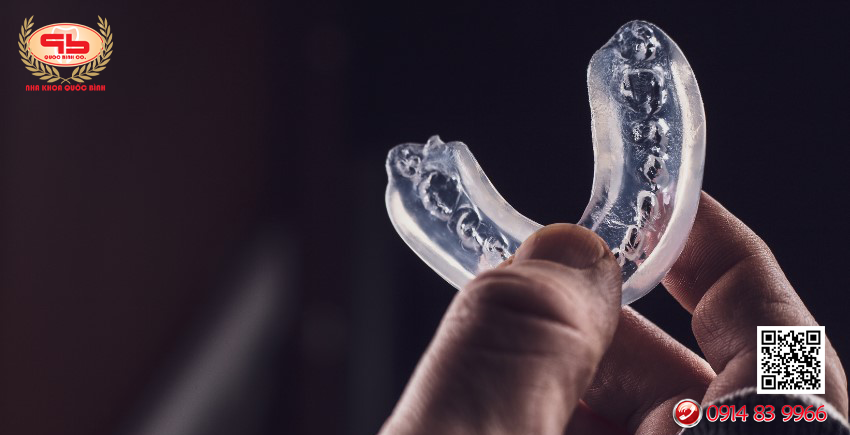Bruxism is not just a nighttime nuisance (while you sleep). It is a common condition that can lead to significant dental damage and negatively impact your daily life. This article will delve into the nature of teeth grinding; Help uncover the underlying causes and consider its impact on overall health. We will also provide solutions to control the condition; Help you protect your oral health and improve your sleep quality.
What is bruxism?
Bruxism is a behavior that can occur both during the day and at night (while you sleep). Teeth grinding while awake is often associated with emotions such as stress, anxiety or concentration; While teeth grinding while sleeping is considered a sleep-related movement disorder; in which the grinding of teeth is automatic and unconscious.
Nighttime teeth grinding is often harder to control because people don’t know it’s happening until symptoms appear. Chronic teeth grinding can cause excessive wear on teeth, leading to chipped enamel, increased tooth sensitivity, and even tooth loss. In addition to the teeth themselves, teeth grinding can affect the muscles and joints in the jaw, causing pain and functional problems with the temporomandibular joint (TMJ).
Causes of Teeth Grinding
The exact cause of teeth grinding is not fully understood; it is generally thought to be due to a combination of physical, psychological and genetic factors:
- Stress and anxiety
High levels of stress and anxiety can lead to excessive teeth grinding, especially during sleep. This is often a natural response to emotional stress or anxiety.
- Sleep disorders
People with sleep disorders such as sleep apnea, snoring or restless legs syndrome are more likely to grind their teeth. These conditions disrupt sleep quality, increasing muscle activity such as grinding teeth.
- Lifestyle factors
Consuming caffeine, alcohol and tobacco can significantly increase the likelihood of teeth grinding. These substances stimulate the nervous system and can disrupt sleep, leading to more frequent teeth grinding.
- Medications
Some psychiatric medications, especially antidepressants, have been linked to an increased risk of bruxism.
- Genetic factors
Bruxism can run in families, suggesting a possible link to the condition.
Symptoms of Bruxism
Many people grind their teeth without even realizing it, especially when they grind their teeth while sleeping. However, some symptoms may indicate whether you or a loved one is grinding their teeth:
- Wear and damage to teeth: Constant grinding can lead to severe tooth wear, causing the teeth to become flattened, fractured, break, or become loose. In severe cases, teeth can wear down to the gum line, requiring extensive dental repairs such as crowns, bridges, root canals, implants, or even full dentures.
- Jaw pain and stiffness: Frequent grinding can lead to pain and muscle tension in the jaw, sometimes leading to a condition called TMJ disorder.
- Headaches: Teeth grinding is often associated with tension headaches, which typically present as a dull, aching pain around the temples.
- Earache: Although it does not originate in the ear, the strong contraction of the jaw muscles during teeth grinding can cause pain that feels like an earache.
- Sleep disturbances: Teeth grinding can disrupt sleep, leading to daytime sleepiness and other sleep-related problems.
- Sensitivity: Frequent teeth grinding can lead to more sensitive teeth due to the enamel being worn away, exposing the softer dentin underneath.
Teeth Grinding Treatment
While not everyone who grinds their teeth while sleeping needs treatment, it becomes necessary when symptoms such as morning headaches, jaw pain, poor sleep, or the potential for long-term damage to the teeth occur. Effective management of teeth grinding involves a multi-pronged approach designed to relieve symptoms and reduce the frequency and intensity of teeth grinding.
- Mouthguards
One of the most common treatments for controlling teeth grinding, especially while sleeping, is the use of mouthguard. These are custom-made by your dentist to cushion your teeth and prevent the negative effects of grinding. They are usually made from a durable, high-quality plastic material. If you have an allergy, such as to latex, it is important to let your dentist know so that the appropriate material can be used.

- Orthodontics
When teeth are misaligned, the upper and lower teeth do not fit together properly, which can aggravate teeth grinding. While your dentist can correct this condition by realigning your teeth, this primarily addresses the malocclusion rather than directly preventing bruxism.
Natural Remedies and Home Care Tips to Prevent Bruxism
Dietary Adjustments
- Avoid hard and crunchy foods like nuts, popcorn, and hard candy. Since they require excessive chewing, they can aggravate jaw tension.
- Be cautious with sticky foods like peanut butter, which can cause your jaw to work harder and become uncomfortable.
- Avoid chewing gum, as it can cause your jaw muscles to clench and lead to more frequent bruxism.
Improve your sleeping environment
Optimize your sleeping position by adjusting your pillow or mattress to better support your head and neck; this can potentially reduce stress on your jaw.
Use a warm compress or ice pack to relax your jaw muscles and relieve pain around your jaw and neck before bed.
Mouth and Jaw Exercises
Incorporating exercises to relax and strengthen the jaw muscles can help reduce teeth grinding.
—- ☘️ ☘️ ☘️—-
QUOC BINH DENTAL CLINIC IN VUNG TAU
Head Doctor Dr. PHAN QUOC BINH
Facility 1: 19 Pham Hong Thai, Ward 7, Vung Tau City.
☎️ 09148399 66/ (0254) 383 99 66
Facility 2: 28 Le Loi, Ward 4, Vung Tau City.
☎️ (0254) 381 83 18 / 0942 231 212
Facility 3: 649 Truong Cong Dinh, Ward 7, Vung Tau City
Doctor in charge Dr. NGUYEN HUU CHIEN
☎️ 0708 649 649
Working hours: 7:30-11:30, 14:00-20:30
https://nhakhoaquocbinh.com/bang-gia/
https://www.facebook.com/nhakhoaquocbinh/

